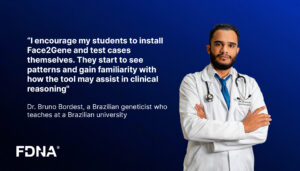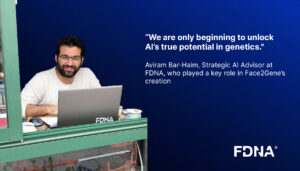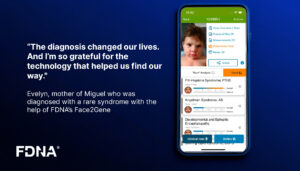March 2019
Natural History Magazine
“FDNA and his team created an artificial intelligence system called DeepGestalt to power their diagnostic aid application, Face2Gene. The app allows healthcare workers to take photographs of patients (which are de-identified before they are uploaded for analysis) and label them with their diagnoses, thereby creating a large, crowdsourced dataset linking faces and genetic disorders. This enabled researchers to train DeepGestalt on over 17,000 images to recognize facial features associated with the genetic markers of 216 different conditions.”
The article delves into the emerging field of Facial Diagnostics, which leverages advanced technology to analyze facial features for medical purposes. It details how FDNA AI and machine learning algorithms can detect subtle facial cues associated with various genetic and rare diseases, offering non-invasive decision support tools for diagnosis. By comparing patient images against a comprehensive databases, these systems can identify conditions with remarkable accuracy. The article highlights the potential of Facial Diagnostics to revolutionize early detection and treatment, making healthcare more efficient and personalized. This innovative approach highlights the profound impact of integrating facial analysis technology into modern medical diagnostics.


